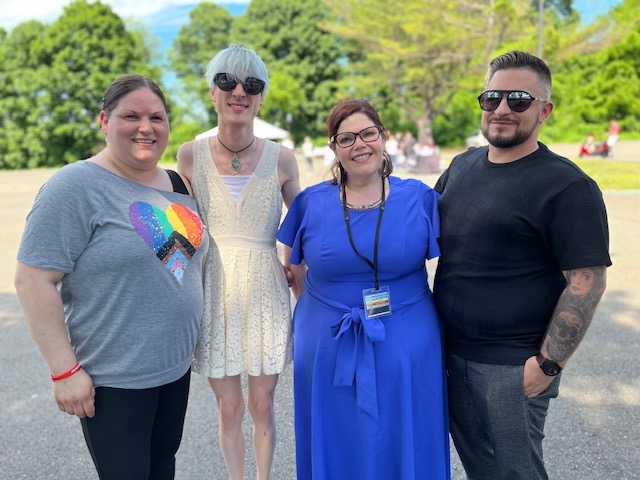DANVERS — In recognition of Pride month, Recovery Centers of America (RCA) in Danvers recently hosted an event titled “LGBTQIA+ and Stigmatization: Understanding the impact and how to find resources.” Speakers from RCA, HRI Hospital, and Great Boston Addiction Center (GBAC) shared the importance of specialized mental health and substance use programming for the LGBTQIA+ community.
Frank Militello, Site Educator for RCA, began the program by citing some startling statistics. According to Militello, 30% of people who identify as LGBTQIA+ have a substance use disorder. This is three times higher than those that don’t identify in this way. In addition, the suicide risk for this population is 6 times higher. “This risk is mitigated by having support from family members, family of choice, and even by seeing community support through displaying rainbow flags,” said Militello.
Access to treatment for the LGBTQIA+ population is something RCA, HRI Hospital, and GBAC are trying to change. All three of these organizations have programs developed specifically to provide needed specialized support.
RCA began to focus on the LGBTQIA+ community with the Acceptance program which evolved and recently relaunched as Thrive. In addition to the treatment that those in active recovery typically receive, these individuals participate in programs tailored to their unique needs.
Jill Robinson is an example of someone who successfully completed the specialized program. Robinson walked into the doors of RCA in Danvers two years ago this June after nearly two decades of being addicted to heroin. a 37-year-old at the time, she made the decision to seek treatment after her mother commented that she didn’t think she would live to see her 40th birthday. This wasn’t the first time Robinson sought treatment, but it was the first time that she was ready to make it last. “My life changed when I walked through the doors at RCA,” said Robinson. “I learned to love myself for the first time. I didn’t realize my substance use and sexual orientation were connected. I finally felt like I had a safe space to talk about my addiction and my relationship and learn from my peers.”
While at RCA, Robinson was encouraged to go after her dreams and achieve her goals. One of those goals that she accomplished was getting hired by the company so she could help people in the Thrive program just as she had been helped. “It was the first time in a very long time that I accomplished something that I set as a goal.” added Robinson, who is now a Recovery Counselor at RCA. “Focusing on my recovery was the best decision I ever made, and I hope I can make a difference in the lives of others like my counselors and the people I was in the program with.”
Other speakers at the event included Blaise Conway, Program Director of the Greater Boston Addiction Center, who talked about his own struggles with addiction and recovery as a gay man. Joining him was Austin Clemmey, a trans woman in recovery who now works at GBAC as a behavior technician.
“Having people that can relate to you and your experiences can make all the difference in a successful recovery program,” said Clemmey.
Carrie Ballou, Director of Community Relations & Business Development at HRI was the final speaker. “Discrimination impacts access to recovery and mental health treatment,” said Ballou. “Having programs that address the specific needs of the LGBTQIA+ population is critically important.”




